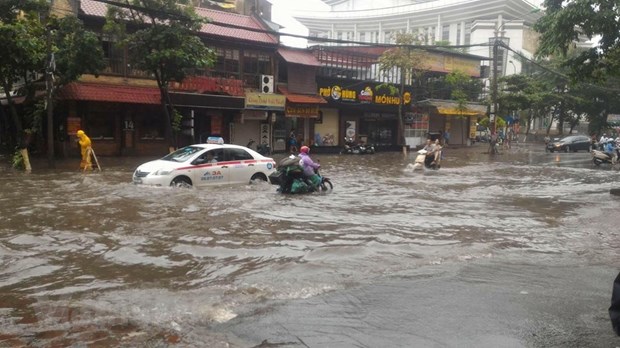 Society
Society


|
| Hà Nội is flooded after heavy rains. — Photo Vietnamplus |
HÀ NỘI — The World Bank in Việt Nam announced on Saturday the Bank’s Board of Executive Directors had approved an US$84.4 million credit from the International Development Association (IDA) to support Việt Nam’s multi-sectoral policy reforms to promote climate-resilient landscapes and green transport and energy systems.
The Climate Change and Green Growth Development Policy Financing aims to consolidate and expand on the achievements of the Government’s Support Programme to Respond to Climate Change 2016-20 (SP-RCC).
This includes supporting policies that should lead to increased protection of water resources, application of water-saving practices over larger areas of farmland, reductions in vehicle emissions, and scaling up of renewable energy.
Ousmane Dione, WB Country Director for Việt Nam, said the new development financing will focus on areas which present the greatest opportunities for transformational interventions to address climate change.
It reflects the bank’s strong commitment to help Việt Nam maintain the momentum under SP-RCC while building a bridge to a post-2020 phase of climate action, he stated.
The programme will support the Government’s climate mitigation actions by strengthening resilient management of landscapes and natural resources and effective management of public investments.
These policy reforms include the establishment of more stringent vehicle emissions standards, adoption of a new national energy efficiency programme and enhanced incentive mechanisms to increase the nation’s wind generation capacity.
The programme will also support the country’s COVID-19 response through highly concessional budget support and by supporting policy reforms that contribute to the national pandemic response.
This includes improving forest management, which helps reduce the risk of emerging zoonotic diseases and increasing investments in natural resources management and climate adaptation, which complements an economic stimulus package aimed at supporting rural incomes and community resilience. — VNS




